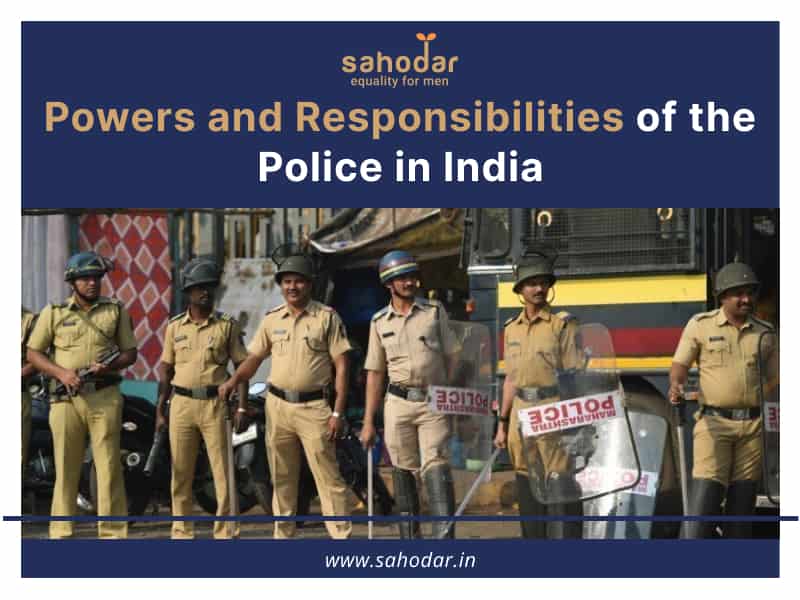Abstract
The Indian legal landscape, deeply rooted in the principles of justice and law, relies on a well-structured legal framework to govern the actions and authority of its police force. This extensive article delves into the hierarchical structure, legal powers, and responsibilities of police functionaries in India, with a particular focus on the statutory framework provided by the Code of Criminal Procedure (CrPC). This comprehensive examination offers a thorough understanding of the role of police in maintaining law and order, investigating crimes, and upholding justice.
Introduction
The Indian legal system is intricately designed to maintain the rule of law, protect the rights of citizens, and ensure public safety. At the heart of this system is the police force, tasked with the formidable duty of preserving peace and preventing and investigating crimes. Understanding the powers, responsibilities, and the legal framework that governs police activities in India is essential to appreciate their critical role in maintaining law and order.
The Police Hierarchy
Inspector-General of Police – The apex of the police hierarchy in each Indian state is occupied by the Inspector-General of Police. This senior officer is entrusted with the oversight and management of the entire state’s police force. Their duties extend to strategic planning, resource allocation, policy implementation, and ensuring the effective maintenance of law and order within the state.
District Superintendent of Police – The District Superintendent of Police, positioned just below the Inspector-General, assumes a pivotal role in overseeing law enforcement activities at the district level. This officer is responsible for the administration and management of the local police force, ensuring operational efficiency and alignment with the civil administration’s goals.
District Magistrate – The District Magistrate, who frequently serves as the Collector of the district, exercises general control and direction over the District Superintendent of Police. This collaborative relationship between the District Magistrate and the District Superintendent of Police ensures that the police force operates in harmony with civil administration, contributing to the seamless maintenance of law and order.
Legal Powers Under the Code
Powers of Arrest and Search – The Code of Criminal Procedure furnishes police officers with specific legal powers that are indispensable for the investigation and prevention of crimes. These powers encompass the authority to make arrests, conduct searches, and execute various functions required in the discharge of their duties.
Powers of Police Station In-charge – Station House Officers (SHOs), responsible for the management of police stations, enjoy augmented legal powers. As central figures in criminal investigations, SHOs are vested with the prerogative to take requisite measures, including making arrests, conducting searches, and commencing investigations. Importantly, these powers are invoked only when complaints specifically allege the commission of cognizable offenses.
Jurisdiction and Responsiveness
Expanding Jurisdiction Senior-ranking police officers are conferred with the privilege to exercise powers on par with SHOs but over an extended geographical expanse. This broadened jurisdiction empowers them to respond to criminal incidents, preserve law and order, and initiate investigations across more extensive territories, transcending the geographical confines of police stations.
Cross-Jurisdictional Law Enforcement Sections 177 and 178 of the CrPC address the imperatives of police investigations that traverse geographical jurisdictions. These statutory provisions empower police officers to adeptly address complaints registered in areas beyond their immediate jurisdiction, facilitating a synergistic and coordinated response to criminal activities spanning diverse regions. Challenges and Controversies
Misuse of Powers – One of the key challenges in the implementation of police powers under the CrPC is the potential for misuse. Instances of police excesses, arbitrary arrests, and abuse of authority have raised concerns about safeguarding citizens’ rights and maintaining police accountability.
Overburdened Police Force – The workload and pressure on the police force in India are immense, often resulting in overworked officers and delayed investigations. This issue highlights the need for increased manpower, training, and modernization of law enforcement agencies.
Procedural Delays – Legal processes and delays in court proceedings can undermine the efficacy of police investigations. This challenge necessitates comprehensive legal reforms to streamline criminal justice procedures and enhance case disposal rates.
Recent Legal Reforms
Police Reforms Commission – Efforts have been made to address the challenges facing the police force in India. The Supreme Court of India, in its landmark judgment in Prakash Singh v. Union of India, laid down several directives for police reforms, including enhanced police accountability, separation of investigative and law and order functions, and the establishment of a Police Establishment Board.
Use of Technology – To modernize and streamline police operations, the incorporation of technology has become increasingly crucial. Initiatives like the Crime and Criminal Tracking Network & Systems (CCTNS) aim to digitize criminal records and enhance information-sharing among law enforcement agencies.
Conclusion
The Indian police force plays a central role in maintaining law and order, preserving public safety, and upholding justice. The intricate hierarchy, legal powers, and responsibilities of police functionaries are governed by the Code of Criminal Procedure. This comprehensive analysis provides a holistic view of the multifaceted role of the police in India and highlights the challenges and reforms needed to enhance their effectiveness while safeguarding the rights and well-being of the citizens they serve. A balanced approach that ensures police accountability, modernization, and respect for legal procedures is crucial to achieving a just and efficient criminal justice system.

